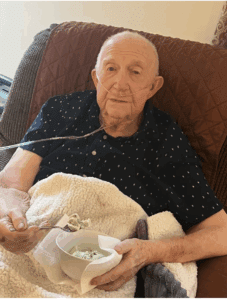Disability is defined in several different ways. Depending on which definition you align with, whether you are disabled or not, and how your disability impacts you, can all shape your perception. In reality, disability is a spectrum, even within the context of a specific form of disability. Things look very different from the inside of a lived experience and an outsider’s view of that same experience. There are a few non-disabled created and societally held beliefs or assumptions held, even by fellow disabled individuals, toward those with disabilities. The outcome of this is people either weaponize or romanticize disability based on their beliefs or assumptions. Those with disabilities, particularly those born that way, have historically been viewed as unintelligent, even if a disability is entirely physical. While intelligence is not questioned as much, in the context of physical disabilities now as it used to be, with people viewing those with disabilities as smart and capable, the belief or assumptions shine through in other ways. The other extreme is that many people see those with disabilities, who require great amounts of support, as a burden, having everything handed to them, or as lucky! So, what happens when you either see a disabled person as unintelligent, or as having everything handed to them, a burden, or view them are lucky? If you see a disabled person as unintelligent, you question their ability to love, understand relationship dynamics and marriage, and ability to parent children. If you see them as a burden, lucky, and as having everything handed to them, then you grow bitter, resentful, pity the other partner for all they have to deal with, and become jealous of what you perceive they have that you do not. No matter what end of the extreme, those with disabilities are typically seen as undesirable partners that do not offer anything of value to the relationship, and those who are in relationships with us are either amazing and wonderful for putting up with us or crazy for dealing with all that a disabled person must put them through.
There is a lot of fear embedded in society around the possibility and potential of a non-disabled person dating or being in a long-term relationship with a person that has a disability. Contrary to popular belief, although this can differ from individual to individual, and depending on the context of disability, the fear is more likely to be experienced by non-disabled people than it is by disabled individuals. One particular area of fear, within relationships with a disabled individual, is bodily fluids during intimacy. While I can completely understand how this is a valid concern, and I can’t speak to all possibilities or disabilities, what I can say is while the concern is legitimate, it is often misguided, which can become problematic. People may assume that a walking individual would never have such issues, but someone in a wheelchair automatically would. In either case, they may be unprepared or over-cautious to ensure such things don’t become a problem in the bedroom, or relationship. A non-disabled person may become fearful and avoid intimacy with a disabled partner who uses a wheelchair, without even discussing it. There is also potential when working under the assumption that something like that would never be an issue, where there is access pressure for intimacy, realizing in an intimate moment that something like that can happen. The same rules still apply when navigating a relationship with a disabled person as they do with anyone. Open communication is key! But, it’s just as important to remember that something like how physical intimacy would play out in relation to a disability may not be a topic for the third or fourth date. It may be 6 months into a relationship where trust has grown, other aspects of the relationship have developed with time, and it seems like things will work out.
I remember vividly my days at college, as a disabled student, and how awkward some exchanges were between staff and myself concerning my disability. One particular day, I was having lunch in the cafeteria when the assistant arrived to help me with getting my portable desk situated to return to class when she noticed something on the floor, with a look of shock, she asked me, attempting but failing to be discrete if it was something that “fell out of me”! I was some combination of infuriated and embarrassed by the question. I wanted to abruptly inform her of how her assumption was logistically impossible. But, rather than draw out the interaction, I promptly informed her that it was something that had dropped from my plate when I was bumped into, causing my chair to get jolted. While this isn’t directly related to intimacy it serves as a great example of fear and responding in a way that doesn’t make sense to the situation. For something to “fall out of me” onto the floor would have involved removing my pants, which I need assistance with, and I am fully aware is not appropriate to do in public. I don’t know many people who would be excited about or that would purposefully attempt indecent exposure, I sure as heck wasn’t! The only way that the question makes any logical sense and would feel appropriate to ask is based on the assumption that I lack intelligence and a fear of the slight difference that comes with managing bodily fluids in my particular situation.
What people fail to realize is not all disabilities equate to a lack of sensation resulting in limitations in relieving one’s self. Also, not all people who use wheelchairs are unable to walk, and they may not even be paralyzed. When people are paralyzed there can be some level of incontinence, and there can be some lack of sensation around knowing when to use the restroom. Depending on the nature of how one became paralyzed, and when can greatly impact their perception of this reality, especially in the context of intimacy. With that said, the reality is that anyone who is living at home within the community with a disability where these things apply has processes in place to take care of them. It is mandatory for anyone who is paralyzed to have a bowel and bladder management program in place before they are allowed out of the hospital to live at home. This means they have a way of taking care of both things, using a catheter for bladder control and laxatives for bowel control. This is helpful for intimate moments because these things are done on a schedule. It is normal to relieve one’s self before going to bed, which is also the time most partners engage in intimate activities with each other. The possibility is potentially there for things to happen, but the chance is so slim, and the amount would be no different than any other fluids that are a part of intimacy. Does something that is possible, but unlikely seem worthy of stressing over, or blowing an entire relationship? Placing such importance on something that really has a minimal impact is potentially blaming and shaming someone over an aspect of themselves that is out of their control and unchangeable.
These things can be a challenge for a non-disabled person to face. Asking a disabled person about personal, intimate things when there is a romantic interest, is hard. They may also be difficult, in a different way, when things change in how the body functions after an accident-related injury compared to prior to it and considering if a relationship existed before or developed after. It can be hard for anyone with a disability from birth, in a very different way, when a partner is uncomfortable addressing things with us because it’s all we’ve ever known. When a partner doesn’t ask, when we sense discomfort or fear during intimacy, we aren’t thinking about bodily functions. We think it’s something we did, or said, or we start thinking that the person doesn’t want to be with us because we are disabled, and there is too much involved in caring for us, which hurts. There’s no way around the reality that a disability in a relationship makes things a little bit different than with non-disabled individuals. But in reality, the things that are involved are just specific and unique. Of course, things may look different and physical limitations would have to be considered to make sure nobody gets hurt, but physical intimacy is a combination of mind, body, exploration, and discovery. If people can work past the fear of getting involved and ask what they need to ask, they will realize how easily things get woven into our everyday lives. The bigger challenge is dealing with all the misguided assumptions, beliefs, and attitudes around disability in the context of relationships and intimacy. Ultimately, all those do is create feelings of unworthiness and being viewed as unloveable as a result of something we didn’t ask for or cause.














